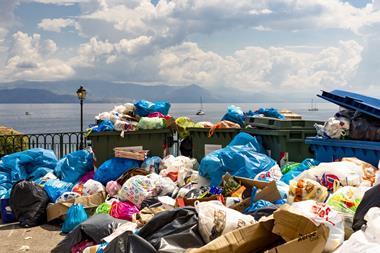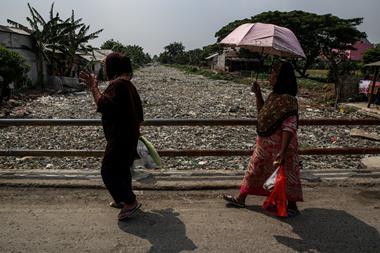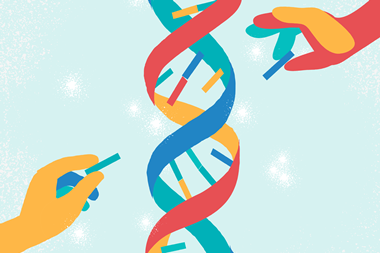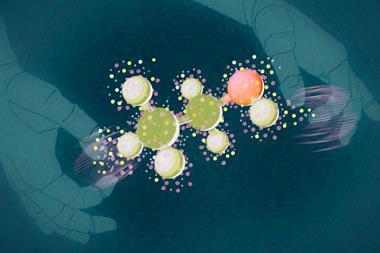The Covid-19 pandemic is our top priority but the plastic problem isn’t going away
For some weeks now, Chemistry World has been produced under lockdown conditions as the world continues to cope with the extraordinary pressures of the Covid-19 pandemic. I’d like to thank everyone involved in making the magazine for their resilience, good humour and unwavering professionalism. I never had any doubt that we would pull through but it has been my privilege to see my colleagues rise to, and overcome, the unique challenges of these unprecedented times.
Before this current crisis, we had planned to release a collection of articles on plastics toward the end of April. Ubiquitous, with a myriad of applications and a host of amazing properties, plastic has become the material of choice for everything from Frisbees to phones to fridges. Plastic is so popular, and so durable, that you can spot a shopping bag at the bottom of the Mariana Trench, find microplastics in falling snow over the Arctic, and detect particles working their way through our digestive systems.
Prime ministers and presidents are deferring to scientists at press conferences
As both Nina Notman and Andy Extance report, science and industry have responded to the mounting public concern and changing market forces surrounding plastics. Consumers are more discerning, regulations are tougher, and if you can solve the plastics problem through recovery, recycling or material design then you can access a global market worth many billions of dollars.
Of course, chemistry is only part of the solution – and it was only part of the problem too. Society, politics and economics all played a role in accelerating demand for plastics with little thought for how we manage its supply and inevitable waste. It takes science together with industry, lawmakers and citizens to make a difference at the scale we need.
It’s easy to see why plastics was a top item on our editorial agenda. A combination of public health, widespread concern, economics and political will – not forgetting a century of scientific inquiry – took the ‘plastic problem’ to the top of the pile. Now, for many of the same reasons, the coronavirus pandemic is the world’s new number one priority. We’ve seen in months what plastic waste took years to accomplish: the galvanising of society, politics, economics and science around a single, worldwide threat. Unlike plastic waste, Covid-19 presents a visceral and urgent threat to life, and our way of life, that can’t be ignored. Research funders are raising and using billions of dollars while labs across the world are working together at breakneck speeds to develop a vaccine.
The public are placing their hopes in researchers, healthworkers and greengrocers to carry them through this crisis
In a stark rebuttal of our supposedly post-truth era, we see prime ministers and presidents deferring to scientists at press conferences, evidence informing and leading policy, and a public placing their hopes in researchers, healthworkers and greengrocers to carry them through this crisis. We are confronted with what essential work really is, and who essential workers really are. I sit here and ponder the next sentence while elsewhere someone is saving a life, another is working toward saving thousands of lives, and yet another is comforting someone who has lost a loved one. It is a humbling perspective.
Already we are considering what we will take forward from our experience of this time. Will we remember how precious the time spent with friends and families is, will we reconsider how we work and travel, will we continue to appreciate those people who kept us fed and healthy, will we value what we have and show compassion for those who have less, will we ever look at toilet paper the same way again?
Above all, will we remember that science in partnership with society saved the day when the intensity of the moment has passed? Perhaps after Covid-19 we will honour those we called heroes with long-lasting commitments that reward, recognise and respect their superhuman efforts. I dare not imagine a world where they have hung up their capes.












No comments yet